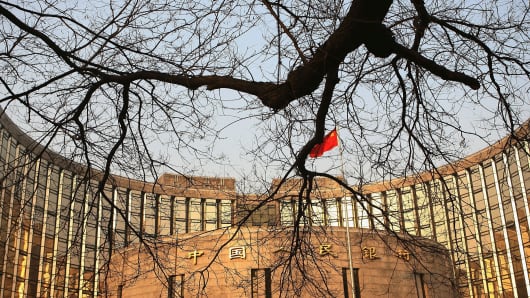Evidence of tightening conditions in China's money market may be building, but analysts don't expect the People's Bank of China (PBOC) to step in just yet, as the central bank wants to see how local lenders adjust to the structural changes taking place.
Chinese money markets suffered a severe liquidity strain last week, raising concerns about the financial risks facing the world's second largest economy.
(Read More: How China Could Douse Optimism From the Fed)
Although overnight night funding rates have eased this week, the seven-day repo rate, which is regarded as a key indicator of market liquidity, remained at high levels around 6.8 percent on Tuesday.
If the PBOC appears reluctant to intervene and pump liquidity into the money markets, it's because the central bank wants to gauge how well local lenders function under a liquidity squeeze, especially as China rebalances its economy and makes long-term changes to its financial system, analysts told CNBC.
"China is an economy in transformation. What we are seeing in the interbank market with a spike in rates is a reflection of the structural changes taking place," Steve Wang, chief China economist at Reorient Financial Markets, told CNBC's "Capital Connection" on Tuesday.
"We see it as an experiment by the PBOC to let the banks deal with more volatility because that's what we need to see for the market to move forward," he said.
According to China watchers, the tight conditions in the money markets have been triggered by a sharp slowdown in foreign exchange inflows and seasonal factors such as last week's three-day public holiday.
(Read More: China Gets the Post-Holiday Blues as Stocks Slump)
So far the central bank has not reacted as aggressively as some market participants may have hoped. On Tuesday, the central bank injected 25 billion yuan ($4.1 billion) into the market, but traders said this was too small to have a significant impact on the market, Reuters reported.



